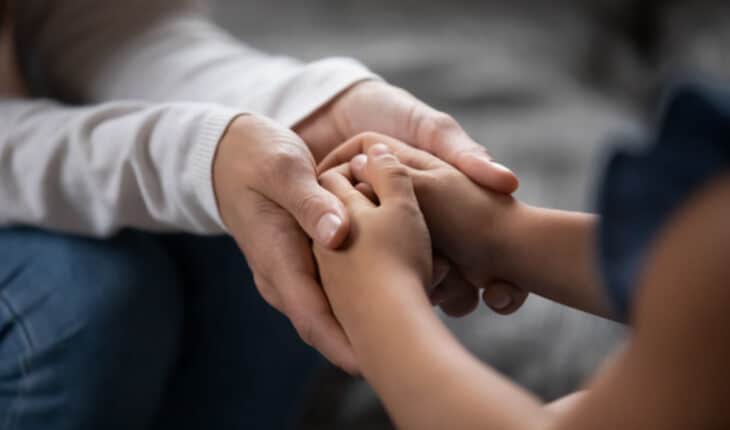Raising children is a heart-warming journey, full of highs, sometimes lows, and everything in between. But sometimes, what we might miss are the quieter signals our children send us, especially when they’re struggling with their mental health. The latest figures from the NHS in England show that in 2023, about 1 in 5 children and young people aged 8 to 25 years had a probable mental disorder, with 452,725 people in contact with children and young people’s mental health services in December 2023 alone.
Anxiety isn’t always loud or obvious, and it can show up in ways we might not expect. Dr Danielle Grey, Clinical Director of Purple House Clinic Birmingham, gives advice to help parents and children tackle anxiety together, whether it’s understanding what anxiety in children looks like, finding the right words to talk about anxiety, or how parents can offer support.
How to recognise anxiety in children:
83% of young people with mental health needs agreed that the coronavirus pandemic had made their mental health worse. The pandemic meant that many children missed out on crucial developmental steps at an important time in their lives. Lockdowns acted like circuit breakers to children’s social interactions and educational experiences, disrupting routines and limiting access to support networks.
It’s common for children to have fears, like being afraid of the dark or separation anxiety. Typically, these fears reduce as children get older and don’t impact their social interactions, schooling, sleep, or family activities. However, if a child’s fear seems uncommon for their age or begins to disrupt significant aspects of their life, parents should take note.
Anxiety feels – and, in fact, can look – different for everyone, and it can affect our body, thoughts, and behaviour. Younger children might struggle to understand and express their feelings and describe anxiety as feeling unwell, with complaints such as tummy aches, headaches, or feeling sick. Children may also start to try to avoid school, stop seeing friends or no longer take part in activities they previously enjoyed.
Each individual’s experience is unique, but some common symptoms to look out for include:
• Irritability, tearfulness, or clinginess
• Bad dreams
• Bedwetting
• Avoiding hobbies
• Lack of confidence
• Angry outbursts
• Problems with sleeping or eating
• Avoiding social situations
What can parents do to help?
Anxiety and mental health can affect anyone at any age. And while mental health difficulties aren’t always preventable, parents can do a lot to support their child in coping with anxiety. We sometimes see a problem and feel the need to fix it, but it’s important to understand that listening and providing a supportive environment can be just as crucial. Anxiety can be an uncomfortable feeling, but it’s ok to feel anxious from time to time. Help your child to recognise the signs of anxiety, what they feel in their bodies, and what negative thoughts they experience. This can support your child to notice anxiety and know when they need to ask for help.
It can sometimes be difficult to talk about feelings. Think about how you can start conversations about feelings. Make it part of the daily routine, check in at dinner time or on the car journey home from school. Create a space where your child feels safe enough to share their experiences; it might be when watching a film or when you’re standing side by side on a walk.
Discuss your child’s concerns openly rather than saying, ‘There’s nothing to worry about.’ Being worried sometimes is normal, so keep talking and offer reassurance. Anxiety can feel like an internal bully; it shares thoughts with us so that we feel that something bad is going to happen, that we’re not good enough or that others will think negatively about us. But by discussing and overcoming these thoughts and feelings, we can help our children build resilience and learn to cope with these situations if they happen in the future.
When to seek support:
As parents, you will be uniquely qualified to spot changes in behaviour, and if you are concerned about your child’s mental wellbeing, you should consider professional guidance. That could be through your child’s school, your GP or a private clinic such as Purple House Clinic.
For more information about Purple House Clinic Birmingham and the therapies it offers, visit www.purplehouseclinic.co.uk/psychologists-birmingham
- Combination of drugs could prevent thousands of heart attacks - 21st April 2025
- UQ Study Links Poor Teen Diets to Heavy Social Media Use - 21st April 2025
- Gut microbiome could delay onset of type 1 diabetes - 3rd April 2025






